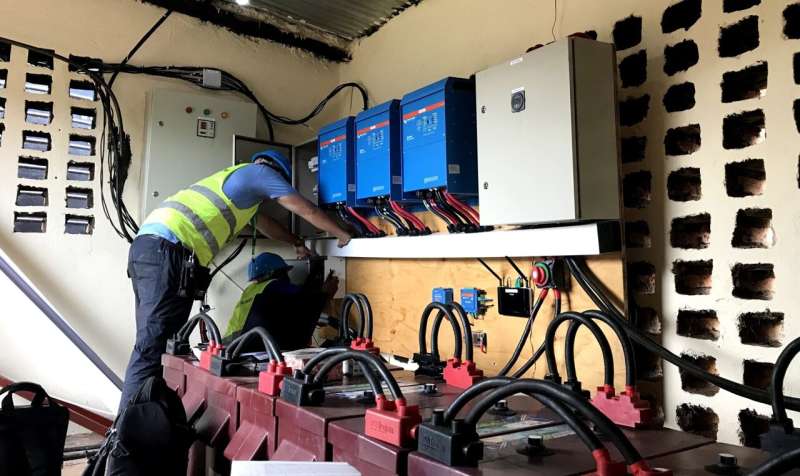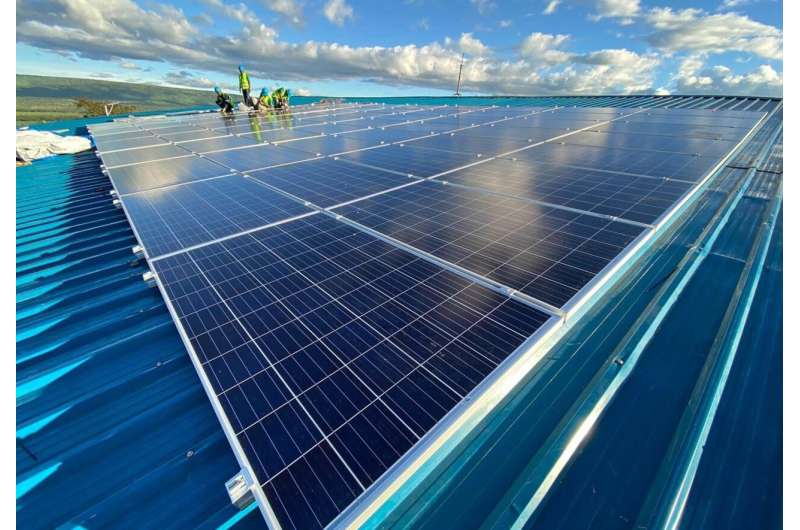Credit: MeshPower Limited
Using solar and battery power can reduce costs and emissions associated with providing power to refugee camps, researchers have found.
Most refugee camps use diesel generators to power essential services including hospitals, police stations, and lighting. Using diesel to generate power is noisy, expensive, and emits large amounts of damaging greenhouse gases and localized air pollution.
Typically, these generators only power essential camp services. Of the 80 million people displaced globally, it is estimated that only 10% have reliable access to electricity.
Credit: MeshPower Limited
Imperial researchers have investigated the supply of electricity to Mahama refugee camp in Rwanda, which is home to 58,000 displaced people from neighboring Burundi and the Democratic Republic of the Congo.
They found that, by integrating solar and battery capacity in conjunction with the existing diesel generators to create a hybrid "mini-grid," fuel expenditure and emissions could be drastically reduced. The system could also allow more people to access electricity, boosting the local economy. The research is published in Renewable and Sustainable Energy Reviews.
More information: Hamish Beath et al, Maximising the benefits of renewable energy infrastructure in displacement settings: Optimising the operation of a solar-hybrid mini-grid for institutional and business users in Mahama Refugee Camp, Rwanda, Renewable and Sustainable Energy Reviews (2023). DOI: 10.1016/j.rser.2022.113142
Provided by Imperial College London

























